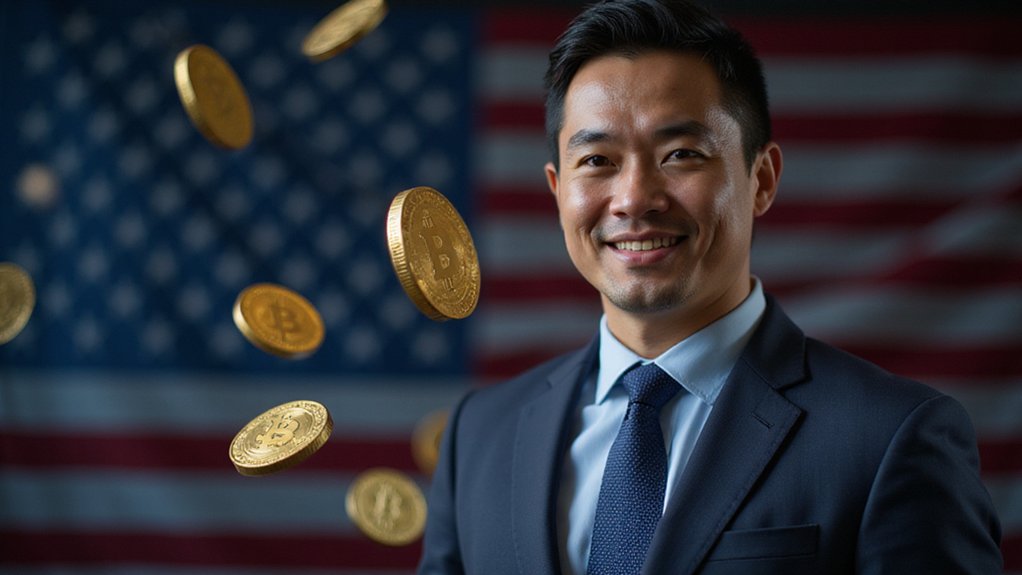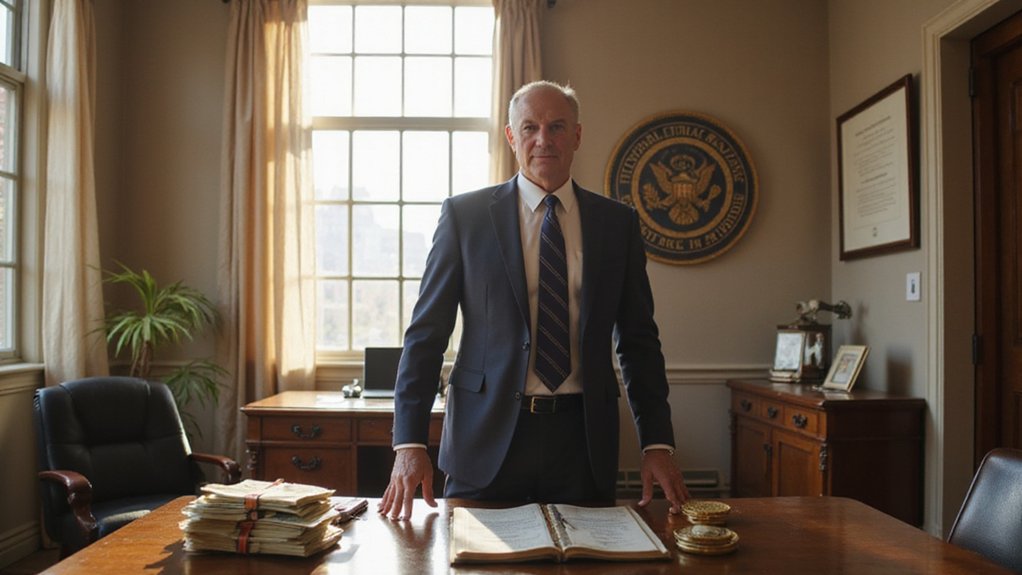The crypto industry’s most theatrical entrepreneur has orchestrated what might be his most audacious performance yet: Justin Sun, the Tron founder whose regulatory troubles seemed to evaporate as conveniently as they appeared, is taking his blockchain platform public in the United States through a reverse merger that reads like a Silicon Valley fever dream crossed with a political networking event.
The deal, orchestrated by Dominari Securities—a New York investment bank with notable Trump family connections—will merge Tron with SRM Entertainment, a Nasdaq-listed entity that presumably found crypto more entertaining than its original business model. Eric Trump is expected to assume a role in the resulting company, adding political celebrity to what was already a sufficiently complex financial maneuver.
Sun’s strategy mirrors MicroStrategy’s Bitcoin accumulation playbook, with Tron offering $210 million in token assets to the new entity. The reverse merger structure promises faster market entry than traditional IPO routes, though one wonders whether speed or regulatory convenience motivated this particular path. The timing proves fortuitous: U.S. regulators recently halted their fraud investigation into Sun and associated companies, clearing obstacles that had previously threatened Tron’s American ambitions.
The merger’s expedited timeline conveniently aligns with the sudden cessation of federal fraud investigations—a coincidence that defies statistical probability.
The announcement triggered a remarkable 647% rally in related stocks, suggesting markets remain enthusiastic about crypto enterprises despite—or perhaps because of—their propensity for regulatory drama. This surge reflects broader investor appetite for digital asset exposure through traditional equity markets, where crypto’s volatility meets Wall Street’s familiar trading mechanisms. The move comes as institutional adoption drives the cryptocurrency market toward significant growth beyond mere speculation.
The deal arrives amid President Trump’s embrace of the digital asset industry, creating a political backdrop that adds intrigue to an already complex transaction. Sun has demonstrated his commitment to the Trump administration through a $30 million investment in World Liberty Financial, further cementing the political ties surrounding Tron’s market debut. The CFTC’s ongoing crypto policy review guarantees regulatory uncertainty persists, making Sun’s timing either prescient or fortuitous.
Industry observers note the controversial nature of Tron’s U.S. debut, given Sun’s previous legal entanglements and the platform’s checkered regulatory history. Yet markets appear willing to overlook past complications in favor of future possibilities, treating the merger as a litmus test for crypto’s integration with mainstream finance. Whether this represents maturation or mere speculation remains an open question in an industry where both possibilities often coexist uncomfortably.









